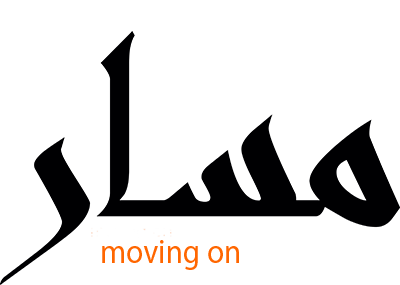The firm’s core competency is the provision of technical assistance in development and humanitarian fields in the MENA region. Moving on expertise results from long standing experience acquired in the MENA region working for various State and non-State actors.
Mastering the MEAL and social research tools are a must for any project implementation, in any context. In fact, evidence-based research and MEAL are the crucial components of any successful project design and implementation and often difficult to ensure in number of contexts such as in armed conflicts or in countries without statistical operators. Moving on area of expertise is on line with the 2030 Development Agenda of the SDGs which emphasis the importance of evidence-based policies and strategies to advance the Sustainable Development Goals.
Moving on team has long standing experience in implementing the OCDE evaluation approach focusing on relevance, effectiveness, efficiency, sustainability and impact. However, Moving on adapts to the project needs and request in implementing innovative participatory approaches and insisting on the learning experiences and success of the projects. In conflict setting, Moving on team has long experience in leading third-party monitoring.
Methodological expertise
- Quantitative, qualitative and mixed methods approach
- Contribution analysis and realist evaluation
- Result based management
- Logical framework (objectives, indicators, means of verifications)
- Theory of Change
Data collection and analysis tools
- Literature review
- Surveys/researches
- Face to face/online semi-structured interviews, key informants’ interviews and focus groups discussions
- Participatory data collection (visual/social media/written diary…)
- Statistical analysis
- Data collection analysis
Principles of the good governance contribute to ensure a fair and peaceful treatment of female and male citizens and participate to the social cohesion. Our approach is online with the Sustainable Development Goals 16 on promoting ‘peaceful and inclusive societies for sustainable development, provide access to justice for all and build effective, accountable and inclusive institutions at all levels.’ Moving on believes that good governance’s principles are a key factor to enhance society transformation and a crucial element in the current situation number of countries in the MENA region are going through.
Moving on expertise is twofold, targeting two main actors: States and civil societies organisations.
In the MENA region the CSOs might take up crucial role in development and humanitarian aid and sometime performing State mission. However, often, the civil society organisations face number of challenges among them are related to technical issues. Moving on provides expertise in strengthening the capacities of these actors, through trainings/coaching and providing technical support to improve good governance practices, efficient, effective and sound management approach.
Good governance and institutional reforms
- Institutional audit and restructuration including gender lens
- Public Administration Modernisation
- Local Governance
- Project Management Units (PMU) and National Authorising Offices (NAO)
- Social protection reform
- Improvement of social security and social assistance schemes
Civil Society strengthening
Training and coaching
- Project cycle management including needs assessment, logical framework, theory of change, indicators
- Management and human resources
- Project writing, fund raising
Technical support
- Strategy and action plans
- Strategic management structural human resources
Knowledge transfer
- Institutional audit and restructuration
- Needs assessments and baseline surveys
- Studies and researches
- Mapping
Gender is a necessary approach in any project implementation in development, relief and humanitarian fields to reach social justice in ensuring diversity and all development and humanitarian players – donors, international institutions, international/national ONG – need to compile to gender benchmarks. If the Sustainable Development Goals identifies a specific objective related to gender (SDGs 5) - to achieve gender equality and empowerment of women and girls - each SDGs should be achieved through a gender perspective.
In the MENA region, gender is a priority in development and humanitarian agendas. Years of collaboration with local and international partners shed a light on strong challenges in mainstream gender as tools and skills are not always afforded such as staffing. Ensuring a gender lens in project implementation implies mastering various concepts which might be unclear. Outdated approach of gender such as the distinction between biological determination of sex and the social construction of gender is yet largely spread. Confusion between concepts such as gender roles, norms and representations mislead number of project objectives. The integration of men and masculinities approach such as intersectionality are still very limited and the layers and complexity of its construction are hardly discussed and deconstructed. Thus, the MTOM and LGBTQI+ understanding in the MENA contexts also reveals number of shortcomings in terms of its historical, social and cultural construction which hampers appropriate project design and intervention.
Moving on is able to provide the tailored expertise to accompany you to decipher the complexities of the gender dynamics and provide the skills requested to ensure gender is mainstreamed through the overall steps of the project implementation.
Moving on will support you as part of the services provided expertise
Training and Coaching
- Training on gender concepts and gender mainstreaming
- Training on (S)GBV programming including case management
- Training on UNSCR 1325 including National Action Plan design and implementation
Technical Support
- Design of gender programmes
- Mainstream gender in project implementation
- Design and evaluation of (S)GBV programmes
- Drafting gender strategies, policies, frameworks and indicators for national governments and international organisations
- Design advocacy campaigns and tools
Knowledge Development and Transfer
- Gender analysis and profiles including masculinities, intersectionality
- Gender audit, including gender budgeting
- Gender lens for base line studies and needs assessments
- Gender sensitive MEAL system and gender responsive monitoring for Women, Peace and Security programs

